- Home
- Steven Becker
Wood's Wreck Page 6
Wood's Wreck Read online
Page 6
The tide pulled at his ankles as he reached the color change and stuck the pole in the sand. For several minutes he stood there observing the water, looking for any clues that would lead him to fish. Most fishermen made the mistake of walking up to a piece of water and blindly tossing a line in. Taking the time to read the water was often the difference between success and failure. Even the smallest structure could hold fish, and he soon spotted several birds diving on an area of disturbed water. Without taking his eye off the spot, he unhooked the lure from the eye on the rod, released a few feet of line, and cast. The lure hit about ten feet past the swirling water, as he intended, and he started reeling, jerking the rod as the lure closed in on the action. As it reached the area he gave a quick pull and the rod bent over.
All his problems were forgotten as he focused on the jumping fish. It was too far away to see, but he hoped it was edible. Bonefish and permit patrolled these flats, and on many days he would be delighted to hook one, but neither fish were good table fare. After several runs, each shorter in intensity and duration, he turned the fish and started taking in line as it came toward him. Now he needed to land it, but he had neglected to bring a net or gaff out with him. Dragging the fish to the shore was an option, but he dismissed it as being too risky, as the hook could easily slip from the fish’s mouth.
When you were fishing for tonight’s dinner, you tended to be more careful.
As it came toward him, he set the rod between his knees and leaned over to scoop the fish out of the water. The twenty-four-inch sea trout was slimy, and escaped his grasp on his first attempt, but he wiped his hands on his cargo shorts and bent over for another try. This time he was able to grab the fish and held it tightly as it started flapping as soon as it left the water.
Finally it quieted down, and he stuck his index finger through its gills and used his thumb to secure it. With the other hand he took the fishing pole, its line still hooked to the fish in case something happened on the way in, and put it under his arm. He pulled the branch from the sand and started to wade for shore.
Still smiling, he reached the shallow water of the flat, where he saw the small white spot showing the location of the boat through the mangroves crowding the edge of the beach. A little surprised that it was still there after two years, especially as close to the waterline as he remembered, he grinned again. He knew the boat was probably in bad shape, but still worth a look. It brought back some bad memories, though, and the smile left his face as he remembered how the man driving the boat had been spying on him and Wood, but hadn’t known the water around the small island and had run aground, severely wounding his friend in the process.
The incident had started a chain reaction that led to Wood’s death while stopping a terrorist plot.
He reached the beach, set his gear and the fish down, and went to a small palm tree, where he pulled a leaf off. With the fish ensconced in the palm leaf, he buried it in the sand to keep the birds away and headed toward the end of the beach. He had to wade to get around the mangroves, but soon found himself in a small clearing, the surrounding brush making the wreck almost invisible from the water.
The boat lay as he remembered it, the blood stains erased by time and weather. Mosquitos swarmed as he leaned over the gunwale and noticed the two feet of water in the cockpit. He moved toward the bow and saw the large hole right on the water line, where the man had hit the sandbar in the shallows, launching the boat toward its resting place. Moving around the boat, he checked the outboard engine—still attached to the twenty-two-foot hull. The bracket must have broken, allowing the motor to hinge when it hit, possibly saving the engine.
There weren’t many engines that he couldn’t get to start, so he went back to look at the damage to the hull. Mosquitos instantly attacked him as he bent over to examine it, and he pulled his head back, swatting at the critters. He went back to the transom and dug a small hole in the sand, reached in, and unscrewed the plug. That would remove the water and hopefully scatter the pests.
Water was soon flowing out onto the sand. Without a pump it would take at least an hour to drain the hull, though, so he decided to go back to the house, clean the fish, and come back later with some tools.
If things went right, this could be the answer to his problems.
***
Cayenne cursed under her breath when she pulled up and saw the truck in the driveway. She had hoped to find the house empty after yesterday’s fiasco. What was Mel doing here, while her boyfriend was in the process of losing everything he owned? Surely she had better things to do than tell her how bad a business woman she was.
It really was about time to let her go, she realized.
She ran her hands through her oily hair, desperately in need of conditioner, and tried to look presentable enough to get past the gatekeeper and into her inner sanctum. She was sure that Mel hadn’t seen her on the boat yesterday, and also confident that Mac—though her boyfriend—didn’t know who Cayenne herself was. If she could get past her, she could lock herself in her room, recover from her night in jail, and figure out what to do next. Eventually she would face Mel, and see if she was suspicious.
She entered and called out for Mel, hoping she was not at her desk. If she was, there would be no way to reach the privacy of her bedroom without passing her.
“Over here,” came Mel’s voice.
Cayenne cursed again. “Hey. I got some stuff in the car. Can you give me a hand?” she said as she turned into a small room off the kitchen and hid.
“Sure.”
Mel walked past her and out the door. Cayenne didn’t hesitate, using the ruse to run to her bedroom and lock the door. Relieved she had made it past the other woman without being seen, she quickly stripped off the sundress and bathing suit she had been wearing since yesterday and went for the shower. She washed everything twice and shaved her legs, just to make sure nothing clung to her from the prison cell.
Satisfied that she was free from infectious disease and feeling better, she toweled off and went to bed. She lay there unmoving, trying to figure out what her exposure was.
She had spent the most time with Trufante, but she was sure he had no clue to her identity. The only thing he might recognize were her boobs, which he had stared at obsessively. As for Mel’s boyfriend, he was more interested in the lobsters than her. The police had kept them separate in jail and although she had heard Mel, she didn’t think she had been seen.. It seemed like she was in the clear. Her lawyers would handle the details, if there were any. She had pleaded the innocent bystander, just taken for a boat ride and as far as she knew, there were no charges pending against her.
The casitas were more of a problem. The Feds knew the approximate if not exact location now, and they would soon figure out that they were in her permit area. She probably had another day to deal with that, she thought, as there had been whitecaps on the water when they drove back from Marathon. You didn’t have to be around the Keys very long to know that when the water looked like that, no one went out. She just needed to get the traps removed before the wind died down and the authorities went to have a look.
She reached in her purse for her cell phone, scrolled through the contacts, and pressed one. A man answered after the second ring.
“Sweetheart. So nice of you to call. Do you miss me?”
It took all she had to control her temper and she thought she might need another shower after she finished the call. “Don’t you ‘sweetheart’ me. Are you back?”
“Why? Do you want me to stop by?” he asked.
Again she tried to calm down. Jay was best handled with a delicate touch when you needed something from him. Losing her temper was not going to help anything. “Well, maybe the girls are lonely. But first I need you to get rid of those casitas by the farm. I don’t want to get into it now, but I expect the Feds to be crawling all over that place as soon as the wind dies.”
“Sweetheart, your wish is my command. That spot’s about played out, anyway. Now when do I get
to see those beauties?”
Chapter 9
The water had drained and, with the exception of a few stragglers, the mosquitos had scattered by the time Mac returned with the last load of supplies. After a lunch of grilled fish, it had taken him several trips to bring over the materials and tools he needed to start work on the boat. His first task was to free the hull from the suction of the sand and inspect the bottom for damage. There was likely work needed there, as well, and he wanted to know the scope of the project before he started.
He was confident he could get the motor going, but the hull presented a bigger challenge, made worse by the loss of the inverter. Unable to use the 110-volt tools, he would only be able to make minor repairs. Once it was free of the sand, he intended to walk the boat around to the other side of the island. It would be easier to work on it there.
To raise the hull, he had carried over a bottle jack, several timbers, and a few sections of pipe. He went to work on the bow first as it was higher on the beach, and set a timber flat in the sand to support the jack directly below the V of the hull. This would be the hardest part of the operation as there was very little purchase for the jack against the steep angle of the hull.
With the jack set on the timber, he started pumping the steel rod, raising the head to about two inches below the point of the hull, and put a piece of wood on top of the jack to prevent the small nose from damaging the boat. Slowly he depressed the jack handle, holding the wood in place until the pressure kept it there on its own. He took a breath and jacked again, adjusting the wood slightly. This was where it would either work or not. If the wood conformed to the shape of the V hull, the jack would lift the boat enough to get a section of pipe under it.
If the wood didn’t cooperate, the jack would blow out.
Again he pushed down on the jack, and the boat moved slightly. He reached over and grabbed the pipe, ready to slide it in as soon as there was enough room between the hull and the sand. One more push on the lever and the hull raised enough for him to set the pipe in place. With a wrench, he released the jack and moved it back to the flatter part of the hull he had just exposed. There he set the timber in the sand and started the procedure again. This operation would have to be repeated in two other spots on the boat, and two more pieces of pipe set, before the bottom would be free of the sand.
Once he had the pipe in place in the second spot, he replaced the plug and checked the motor tilt. The keys were still in the ignition—probably rusted there after the two years the boat had sat in one place. He turned the key, surprised at the little resistance it offered, but nothing happened - the battery was dead. The motor would have to be tilted manually. He grabbed the jack and went to the stern, where he placed it on the timber and adjusted it to a spot where the lower unit bolted to the engine, thinking this would be the fulcrum. The motor started to hinge as he jacked, and he was soon able to reach behind it and place the tilt bracket in position, securing it.
He repeated the procedure, put the third pipe in place and lifted the tools into the boat. He moved to the stern and jammed the end of a long piece of timber as far under the boat and as deep as he could into the sand and started to push, using it as a lever. At first the pipes dug in, but one at a time they started to roll, and the hull was soon floating in the clear water. Mac went around the boat, checking for damage that the sand would have concealed. There were some rough spots, but nothing appeared to be leaking. The hole in the bow was just above the water line now. The driver had grounded while on plane, when the bow was deeper in the water. But the weight of the engine with the boat at rest lowered the stern and kept the hole out of the water.
He grabbed the end of a line hooked to the bow cleat and started to pull the boat toward the other beach.
***
Jay leaned back in the lounge chair and sipped his drink. It was comfortable in the shade of the palapa he had built over the deck, except for the freakin’ birds, which were always squawking. They were everywhere; egrets, ospreys and whatever else figured they were safe here. The constant squawking and poop were the only things that wrecked his paradise, but the wildlife sanctuary also kept boat traffic away.
The structure was nestled in the mangroves that lined the shore, giving him an element of privacy. The patio where he sat turned into a wooden dock, and was set in a small cove concealed by a series of switchbacks in the channel, making it invisible from the water.
He set the glass down on a small table next to the chair and ran his finger over the condensation. Ice was a luxury here, using a disproportionate amount of the energy that the solar system and backup generator provided. But ice made him happy, and he had forsaken air conditioning for it.
Just one more thing he’d given up for the chance to be alone and safe. His stake here was legitimate, the northwest part of the island deeded to him legally. It was reassuring, if not ironic, that the rest of the island and most of the surrounding waters were protected by the Feds. His long time affiliation with the director of the CIA had allowed him to lease this little spit of sand and brush for $99 a year, and even that was reimbursed by the CIA.
As a covert operative, he used this paradise as a base of operations for anything that could be moved by boat. That included people, guns, money, and drugs, depending on his orders. Some authorized and much not, he thought, looking over at the two boats tied to the dock. One was a twenty-two-foot single-engine center console he used to blend in with the locals, the other a forty-three-foot triple engine vessel also known as a go fast boat—a smuggler’s dream.
He took another sip and rubbed the glass against his forehead, leaving it there for a minute to cool him as he thought about Cayenne and the casitas he’d promised to move tomorrow. Helping the girl had been a brilliant addition to his business. Lobster tails brought big money and didn’t interfere with his contract work. And having her little permitted coral sanctuary—or whatever it was—so close provided the perfect cover for the casitas. The illegal traps, which could bring in one thousand tails a week at $10 per tail, added up to serious money.
For his day job, he typically ran a load or two a month, using the fast boat to take guns and cash to Cuba or Venezuela; wherever Norman Stone, director of the CIA, wanted them. The cargo brought back on the return trip was the interesting part. Pure genius on the part of Stone, who smuggled Cuban baseball players back as political refugees and took a ten percent lifetime commission on their earnings. Most of the players washed out or stayed in the minor leagues, but once in a while they hit it big.
If there was enough room in the boat, Jay filled the void with anything he could get cash for. What was the CIA going to do? He was pretty sure the work he was doing for Stone was off the books, and that gave him freedom to pursue his own agenda.
Of course, logistics were a challenge in the smuggling business. Full loads going in both directions were the way to make money, and he cursed Stone for the run he had scheduled for tomorrow. He had made a quick call to a supplier in Marathon, but they would only by able to provide a partial load of arms to deliver to his contacts there. And now Cayenne was screaming about the casitas. He picked up the phone and dialed a number from memory.
“Stone here.”
“Yo, Norm, listen. We have a little schedule issue,” he started.
He held the phone away from his ear as the man unleashed his usual tirade.
This wasn’t the first time he’d had a scheduling conflict, and he used the fact that Stone had no choice but to deal with him to make things work to his advantage.
When the rant was over, he continued, “Got to put this off for a couple of days. Weather’s bad right now, and supposed to get worse.” It was the truth, but weather was usually no more than an inconvenience in his line of work. Short of a hurricane, the jobs went as scheduled. But this time he was going to make it an issue.
There was a pause, and he knew that Stone was probably at his computer, verifying what he said .
While he waited, he walked toward th
e dock and opened a chest freezer, removing a fish carcass and tossing it into what looked like an underwater cage with a row of barbed wire above the water. There was a large splash and the fish was gone. He smiled.
After a minute, the man’s voice came back on the line. “There’s no reason you can’t run this cargo tomorrow.”
“Norm, Norm, Norm… Listen, man. The wind stops, it takes another day for the seas to calm down. Just let them know I’ll be there Thursday around dawn. I’ll make the run at night.”
This would give him tomorrow to pull the casitas and a few hours to play with Cayenne.
“Do I need to find someone else to run this?” the director asked.
Jay laughed. “You’re going to threaten me? Me?” He took a long sip of his drink, keeping the man waiting. “This is you and me, bud. I’m the only guy you have, and if you cross me I can disappear like that.” He snapped his fingers. “Like vapor. You, on the other hand, will be in front of a congressional committee and above the fold of the New York Times.”
Silence.
“So Thursday at dawn,” Jay confirmed, and hung up.
He drained his drink and ambled toward the house swirling the remaining ice cubes in his mouth. At a granite topped bar he refilled the glass and went through an open living area, down a hall and to a room with three girls sprawled on a large couch under the ceiling fan. He reached for the blonde in the middle and pulled her to her feet, then led her toward his bedroom.
There were perks in running people back and forth, and this was one of them. Knowing their fates in other countries, it was hardly surprising what some of these girls would do to stay in the US. He had to keep Norm happy to keep that going.

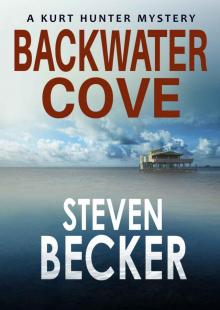 Backwater Cove
Backwater Cove Storm Surge: A Fast Paced International Adventure Thriller (Storm Thriller Series Book 3)
Storm Surge: A Fast Paced International Adventure Thriller (Storm Thriller Series Book 3)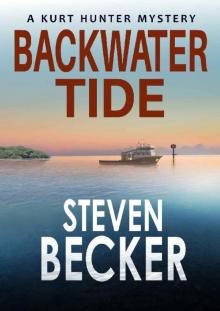 Backwater Tide
Backwater Tide Backwater Pass
Backwater Pass Backwater Flats
Backwater Flats Wood's Revenge
Wood's Revenge Haitian Gold
Haitian Gold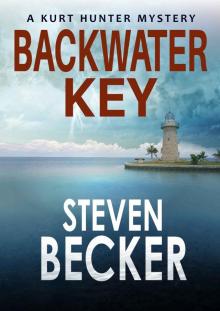 Backwater Key
Backwater Key Wood's Tempest
Wood's Tempest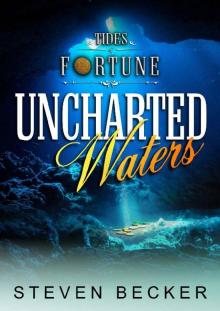 Uncharted Waters
Uncharted Waters Tuna Tango
Tuna Tango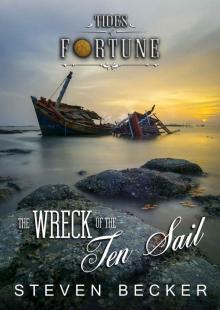 The Wreck of the Ten Sail
The Wreck of the Ten Sail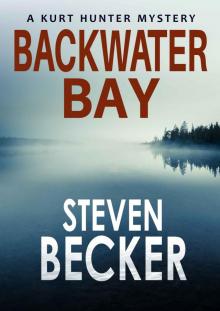 Backwater Bay (Kurt Hunter Mysteries Book 1)
Backwater Bay (Kurt Hunter Mysteries Book 1) Storm Clouds
Storm Clouds Wood's Wall
Wood's Wall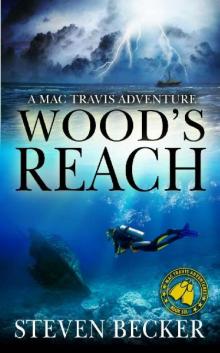 Wood's Reach
Wood's Reach Wood's Fury
Wood's Fury Storm Rising
Storm Rising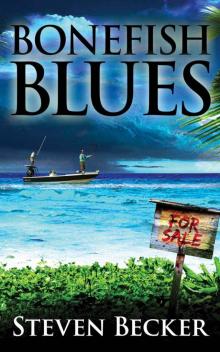 Bonefish Blues
Bonefish Blues Wood's Harbor: Action & Sea Adventure in the Florida Keys (Mac Travis Adventures Book 5)
Wood's Harbor: Action & Sea Adventure in the Florida Keys (Mac Travis Adventures Book 5)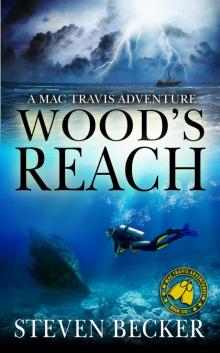 Wood's Reach: Action & Sea Adventure in the Florida Keys (Mac Travis Adventures Book 6)
Wood's Reach: Action & Sea Adventure in the Florida Keys (Mac Travis Adventures Book 6)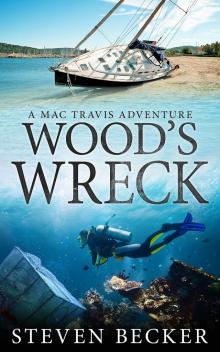 Wood's Wreck
Wood's Wreck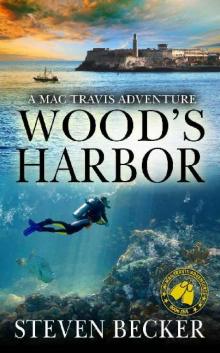 Wood's Harbor
Wood's Harbor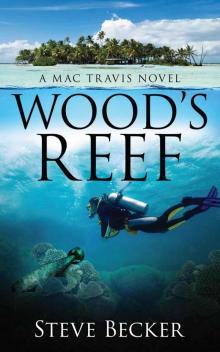 Wood's Reef
Wood's Reef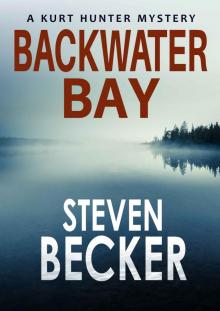 Backwater Bay
Backwater Bay